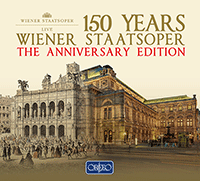Tom Krause
Tom Krause, whose father was the manager of an insurance company, initially studied to become a psychiatrist. He graduated in medicine from Helsinki University, but played piano and guitar in a jazz group while a student and his interest in music, especially singing, moved him gradually towards a musical career. Formal vocal studies began in 1956, in Hamburg and at the Vienna Academy of Music: Krause’s teachers included Margot Skoda, Sergio Nazor and Rudolf Bautz. Under the name Tomas Krause he made his debut as a lieder singer in Helsinki in 1957 and his operatic stage debut in 1959 at the Deutsche Oper in Berlin as Escamillo / Carmen.
After singing Kurwenal in Decca’s 1960 recording of Tristan und Isolde, conducted by Georg Solti, Krause quickly gained an international profile. In 1962 (the year in which he also became a member of the Hamburg State Opera) he first appeared at the Bayreuth Festival as the Herald in Lohengrin and at the Glyndebourne Festival during the following year as the Count in Capriccio.
Hamburg was Krause’s musical base until 1975. Significant premieres in which he sang here included Ernst Krenek’s Der goldene Bock (1964), Gunther Schuller’s Die Heimsuchung (The Visitation) (1966) and Humphrey Searle’s Hamlet (1968, the year in which he was made a Kammersänger).
In America Krause’s debut came in 1963, as the baritone soloist in the first American performance of Britten’s War Requiem at Tanglewood with Erich Leinsdorf conducting the Boston Symphony Orchestra. He first sang at the Metropolitan Opera, New York during October 1967, as Count Almaviva / Le nozze di Figaro. Krause appeared regularly at the Met until March 1973, his roles including Escamillo, Dr Malatesta / Don Pasquale and Guglielmo / Così fan tutte, a part which he also sang with the Lyric Opera of Chicago. For Solti and the Chicago Symphony Orchestra he sang Christus in Bach’s St Matthew Passion both in concert and on record.
Back in Europe, Krause sang the title role in Don Giovanni at the Salzburg Festival between 1968 and 1970; other Salzburg appearances included Count Almaviva (1972–1976, 1979–1980), Guglielmo (1969–1970) and Don Ferrando / Fidelio (1982–1983), as well as numerous song recitals; as late as 1998 he took part in the Festival’s highly praised production of Messiaen’s Saint François d’Assise, in which he had already appeared at the Bastille Opera in 1992. His Paris Opera and La Scala, Milan debuts occurred in 1973 and 1975 respectively.
Other roles undertaken by Krause included Golaud / Pelléas et Mélisande, Amfortas / Parsifal, Amonasro / Aida, Renato / Un ballo in maschera, Germont père / La traviata and Don Pizarro / Fidelio; while later appearances took in King Philip / Don Carlo (Savonlinna Festival, 1985), Méphistophélès / Gounod’s Faust (Houston, 1985), Alfonso / La favorita (Barcelona, 1989) and the Speaker / Die Zauberflöte (Savonlinna, 1997).
During the late 1980s Krause began to give master-classes and subsequently taught at conservatories in Helsinki, Hamburg and Madrid. He was awarded an honorary doctorate from Helsinki University in 2003.
The possessor of a most beautiful, soft-grained voice, Krause used this with great expressiveness as well as dramatic force when required, cutting a strong yet elegant figure on stage.
© Naxos Rights International Ltd. — David Patmore (A–Z of Singers, Naxos 8.558097-100).





















